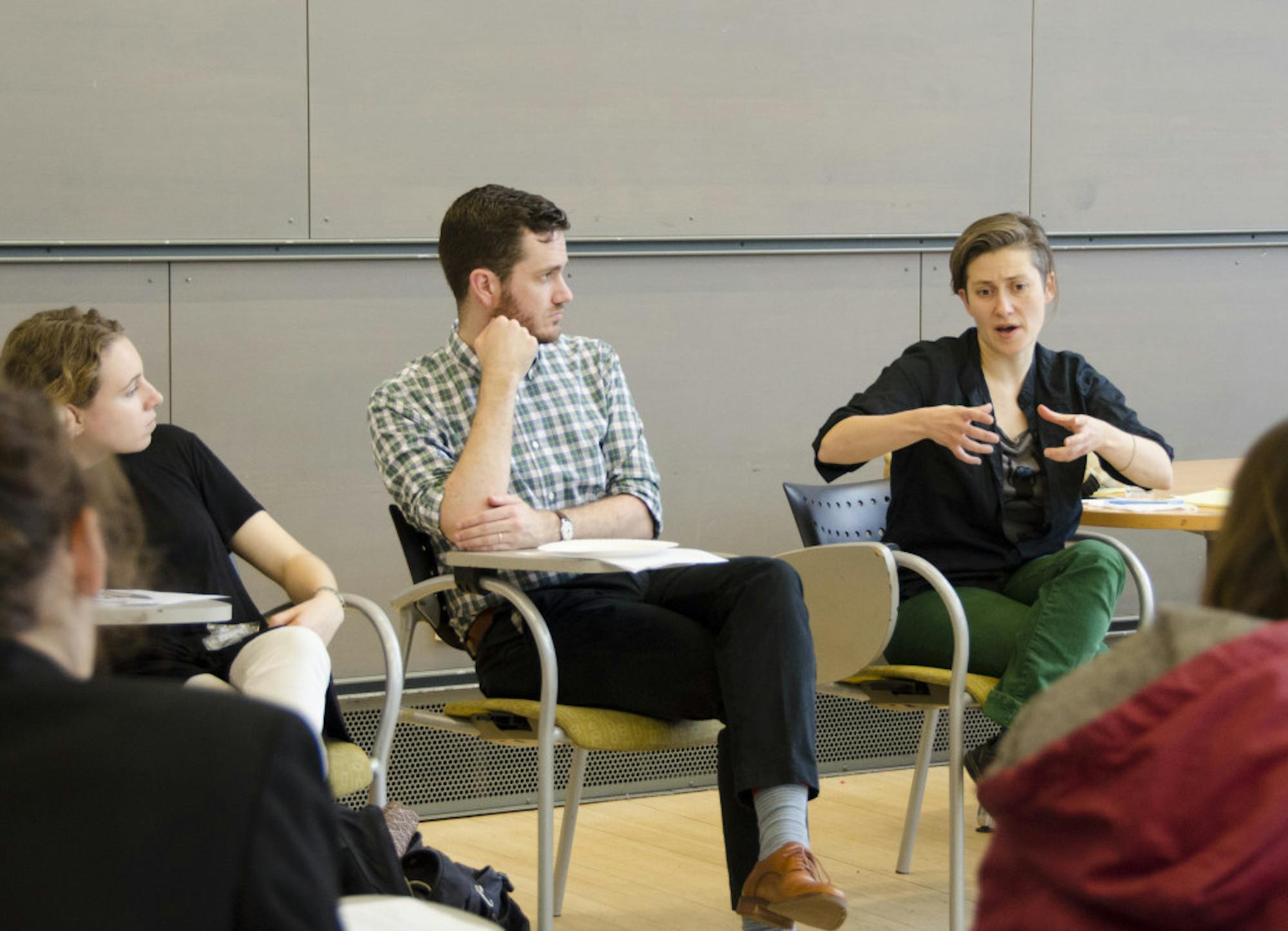Students and faculty gathered in the Sophia Gordon Multipurpose Room last Thursday for a Student Summit on the new Science, Technology and Society (STS) program, which was introduced this semester to provide students with an interdisciplinary approach to study topics in science and technology as well as their effects on society.
Last week's summit provided a forum for interested students and alumni to discuss the new program, which offers both a co-major, to be declared along with the completion of another major, and a minor. The three main tracks of study of the STS program include Bodies, Health and Medicine, Science and the State as well as Mathematics and Modeling, according to the program's website.
Program Director Moon Duchin hosted the Student Summit. She said the event allowed students interested in STS to share their ideas for the development of the program.
“We want to hear what students are interested in; we want to hear about how to build a community that works for [the students],” Duchin said at the event. “The forum is designed to figure out which courses will appeal to [students] and have [them] pitch ideas for that courses could fill.”
Over time, Duchin hopes to build a community of students within the STS program. As the program is still in its inaugural semester, her primary concern is getting it off the ground. The Student Summit was a part of her campaign to increase awareness for the new major.
At the forum, students shared their desires for the major's future. Ideas ranged from broadening the program to include courses studying music theory and the physics of instruments to examining the use of mathematics of elections to introducing reading labs for reading-intensive courses.
Spearheading the creation of the program, Duchin also assembled a committee of faculty from across the university, according to Associate Professor of Philosophy Patrick Forber, who sits on the program’s executive committee.
Duchin explained that she wanted to tap into the success of the STS programs she saw at other institutions in creating the program at Tufts. One of the most prominent programs, she said, is at Massachusetts Institute of Technology (MIT), which was founded in 1976.
“The program [addresses] two basic, interrelated questions: how did science and technology evolve as human activities, and what role do they play in the larger civilization?” according to the program’s website.
While Duchin noted that addressing these questions is central to any STS program, she noted that “Tufts is not MIT” and that the Tufts program committee planned to structure its program differently, rather than mirroring MIT’s. Duchin said she primarily worked within the existing course listings at Tufts to shape the curriculum.
Professor of Urban and Environmental Policy and Planning Sheldon Krimsky, who served on the program's planning committee, explained that courses were incorporated from various departments across the university, such as "Bioethics" from the philosophy department and "Globalization" from the history department.
“There were already courses relevant to STS [before its introduction],” Krimsky said. “But there was no curriculum that brought it together [until now.]”
 Dr. Sam Weiss Evans, professor of an STS Program course called Technoscience and the State, poses for a portrait on the Academic Quad on Wednesday, Feb. 10. (Evan Sayles / The Tufts Daily)
Dr. Sam Weiss Evans, professor of an STS Program course called Technoscience and the State, poses for a portrait on the Academic Quad on Wednesday, Feb. 10. (Evan Sayles / The Tufts Daily)Additionally, some new classes have been introduced specifically for the major as well, such as Technoscience and the State — a course that examines the intersections between technology and society, according to STS' website.
The development of the STS program represents a major step forward in Tufts’ approach to sciences, according to Krimsky. Before the introduction of the program, students studying hard sciences, such as physics or chemistry, could seldom study their disciplines through a broader lens, Krimsky said. However, through STS, students can understand the impact sciences have on society, and conversely, the impact society has on sciences, Krimsky added.






